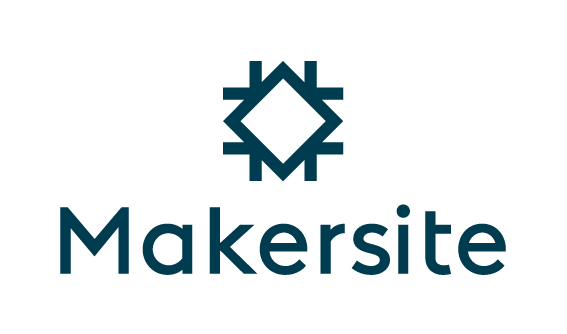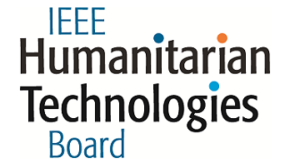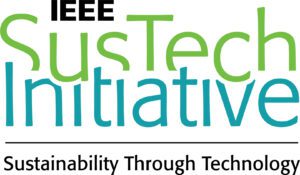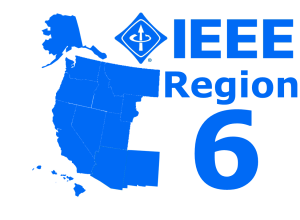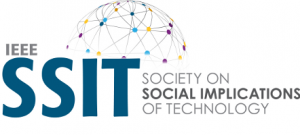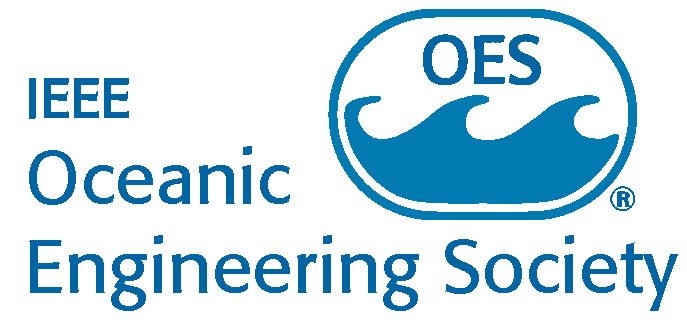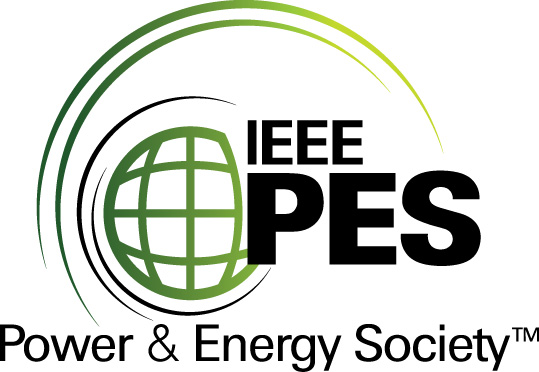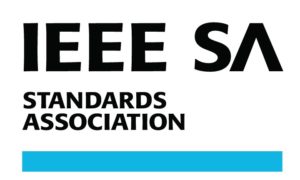Featured Speakers 2021
| Mohamed-Slim Alouini | “6G: Towards a More Connected and Sustainable World” |
| Jack Brouwer | “100% Renewable And Zero Emissions Energy With Hydrogen” |
| Walter Iu | “ESG – Environmental, Social, and Corporate Governance” |
| Nirupama Prakash Kumar | “New paradigm in renewable microgrids – let’s change our thinking!” |
| Maike Luiken | “New Initiatives in Advancing IEEE Sustainability Thought Leadership” |
| Dr. Vasilios I. Manousiouthakis | “Analysis and Synthesis of Sustainable Systems” |
| Dr. Benjamin Park | “Enabling What Customers Want: The Story of Enevate’s Technology” |
| Jay Schmuecker and David Toyne | “Our Tractor Fuels and Farm Fertilizer Demonstration System” |
| Stafford Sheehan | “A new chemical process for ethanol production from carbon dioxide, water, and electricity” |
| Daniel K. Tabor | “If We Build It They Will Come – The Intersection of Technological Systemization and Customer Proficiency” |
| Brian Zahnstecher | “A System of Systems (SoS) for Assessing & Optimizing Networks for Energy Efficiency” |
6G: Towards a More Connected and Sustainable World
Mohamed-Slim Alouini, King Abdullah University of Science and Technology (KAUST)
Abstract:
The role of Internet and Communication Technology (ICT) in bringing about a revolution in almost all aspects of human life needs no introduction. It is indeed a well-known fact that the transmission of the information at a rapid pace has transformed all spheres of human life suchas economy, education, and health to name a few. In this context, and as the standardization of the fifth generation (5G) of wireless communication systems (WCSs) has been completed, and 5G networks are in their early stage of deployment, the research visioning and planning of the sixth generation (6G) of WCSs are being initiated. 6G is expected to be the next focus in wireless communication and networking and aims to provide new superior communication services to meet the future hyper-connectivity demands in the 2030s. In addition, keeping in mind that urbanized populations have been the major beneficiary of the advances offered by the previous generations of WCSs and motivated by the recently adopted United Nations Sustainability Development Goals intended to be achieved by the year 2030, 6G networks are anticipated to democratize the benefits of ICT and to bring global connectivity in a sustainable fashion in order to contribute to developing tomorrow’s digitally inclusive and green world. In this context, this talk aims to (i) provide an envisioned picture of 6G, (ii) serve as a research guideline in the beyond 5G era, and (iii) go over some of the recently proposed green technologies to offer high-speed connectivity not only in urban environments but also in under-covered areas in order to serve and contribute to the development of far-flung regions.
Bio:
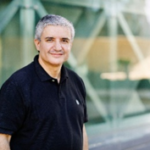 Mohamed-Slim Alouini was born in Tunis, Tunisia. He received the Ph.D. degree in Electrical Engineering from the California Institute of Technology (Caltech), Pasadena, CA, USA, in 1998. He served as a faculty member in the University of Minnesota, Minneapolis, MN, USA, then in the Texas A&M University at Qatar, Education City, Doha, Qatar before joining King Abdullah University of Science and Technology (KAUST), Thuwal, Makkah Province, Saudi Arabia as a Professor of Electrical Engineering in 2009.
Mohamed-Slim Alouini was born in Tunis, Tunisia. He received the Ph.D. degree in Electrical Engineering from the California Institute of Technology (Caltech), Pasadena, CA, USA, in 1998. He served as a faculty member in the University of Minnesota, Minneapolis, MN, USA, then in the Texas A&M University at Qatar, Education City, Doha, Qatar before joining King Abdullah University of Science and Technology (KAUST), Thuwal, Makkah Province, Saudi Arabia as a Professor of Electrical Engineering in 2009.
100% Renewable And Zero Emissions Energy With Hydrogen
Jack Brouwer, U.C. Irvine
Abstract:
Renewable, ultra-low emissions and high efficiency energy conversion systems will be required to introduce energy resource and environmental sustainability. In particular the dynamic dispatch, massive energy storage capacity, and ubiquitous transmission and distribution of energy that the power-to-gas and hydrogen energy storage concepts provide will become essential to enable a 100% renewable economy. In addition, these concepts enable zero greenhouse gas and zero criteria pollutant emissions energy conversion that spans across applications in the built environment, to transportation, to utility grid network support and sustainability. Recent research on the dynamics and control of electrochemical energy conversion systems to enable this future with the hydrogen vector will be discussed.
Bio:
 Jack Brouwer, Ph.D. is Professor, Mechanical and Aerospace Engineering, Civil and Environmental Engineering, U.C. Irvine; and Director, National Fuel Cell Research Center & Advanced Power and Energy Program. Prof. Brouwer is an energy system dynamics expert with research interests in advanced, alternative and renewable energy systems development; dynamic simulation and control systems development; energy system thermodynamics, design, and integration; electrochemical conversion devices and systems such as fuel cells, electrolyzers and batteries; hydrogen production, storage and conversion systems; and electrochemical reactions with concurrent heat, mass and momentum transfer. Prof. Brouwer obtained his M.S. and B.S. in Mechanical Engineering from the University of California, Irvine and his Ph.D. in Mechanical and Chemical Engineering at MIT.
Jack Brouwer, Ph.D. is Professor, Mechanical and Aerospace Engineering, Civil and Environmental Engineering, U.C. Irvine; and Director, National Fuel Cell Research Center & Advanced Power and Energy Program. Prof. Brouwer is an energy system dynamics expert with research interests in advanced, alternative and renewable energy systems development; dynamic simulation and control systems development; energy system thermodynamics, design, and integration; electrochemical conversion devices and systems such as fuel cells, electrolyzers and batteries; hydrogen production, storage and conversion systems; and electrochemical reactions with concurrent heat, mass and momentum transfer. Prof. Brouwer obtained his M.S. and B.S. in Mechanical Engineering from the University of California, Irvine and his Ph.D. in Mechanical and Chemical Engineering at MIT.
ESG – Environmental, Social, and Corporate Governance
Walter Iu, PwC Strategy&
Abstract:
Businesses from starts ups to major corporations are fundamentally questioning their purpose. Is profitability and shareholder return the most important goal or is it something else? ESG: Environmental, Social, and Governance concerns are at the forefront of the sustainability discussion. Can profits and sustainability be balanced?
In this talk we’ll discuss the current and changing ESG landscape and how to think about each element of the ESG acronym. What concerns are top of mind and what frameworks and metrics can be used to understand what is good or bad? We’ll touch on the pros and cons of ESG overall and the challenges that lie ahead.
Bio:
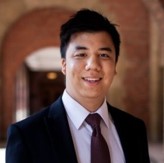 Walter Iu is a Senior Associate at PwC Strategy& where he serves clients across several industries including technology and industrial products. He has helped over a dozen Fortune 500 corporations on a range of problems from transforming portfolios to improving company operations. Walter earned his undergraduate and master’s degrees in electrical engineering from the University of Southern California. He has been involved with the IEEE for almost 10 years and has served in variety of volunteer roles especially for Young Professionals in Southern California and Washington D.C.
Walter Iu is a Senior Associate at PwC Strategy& where he serves clients across several industries including technology and industrial products. He has helped over a dozen Fortune 500 corporations on a range of problems from transforming portfolios to improving company operations. Walter earned his undergraduate and master’s degrees in electrical engineering from the University of Southern California. He has been involved with the IEEE for almost 10 years and has served in variety of volunteer roles especially for Young Professionals in Southern California and Washington D.C.
New paradigm in renewable microgrids – let’s change our thinking!
Nirupama Prakash Kumar, Bloom Energy
Abstract:
The race to reduce greenhouse gas emissions is the defining challenge of our time. Pressure is mounting for our electric system to get cleaner, faster. While important strides have already been made, the rising frequency and intensity of extreme weather events in recent years has underscored the critical need to invest in resiliency.
Stakeholders across the organizational spectrum are navigating an unprecedented risk landscape – energy security has become table stakes as people search for solutions that can keep the lights on amidst the growing frequency of threats.
Fortunately, we are now in a time where there are multiple options for sourcing electricity. Emerging technologies and business models represent a key opportunity to overcome the compounding challenges of reducing carbon emissions while expanding the resilience of our nation’s electric system. This talk will present the new paradigm in renewable microgrids.
Bio:
 Nirupama Prakash Kumar, SMIEEE earned her undergraduate degree in power systems engineering from University of Mysore, India. She finished her MS in Energy Systems from the University of Washington in Seattle. Her research interests included effective demand response techniques to improve energy efficiency. She completed her MBA from Cornell University where she was recognized both as an ‘Environmental Finance and Impact Investing Fellow’ as well as an ‘Emerging Markets Fellow’. She has worked for the Pacific Northwest National Laboratory, NextEra Energy, and a FACTS startup called Smart Wires. Currently, she is Senior Product Manager in Microgrids with Bloom Energy. Niru’s interests also include the most cost-effective methods of making technology accessible to the base of the pyramid. Niru is heavily involved with IEEE and its humanitarian technology efforts. She is also the IEEE Region 6 Humanitarian Activities Coordinator and IEEE HAC Project Committee chair. She works with the South Asia Working Group of IEEE Smart Village. She is also part of IEEE USA’s Energy Policy Committee.
Nirupama Prakash Kumar, SMIEEE earned her undergraduate degree in power systems engineering from University of Mysore, India. She finished her MS in Energy Systems from the University of Washington in Seattle. Her research interests included effective demand response techniques to improve energy efficiency. She completed her MBA from Cornell University where she was recognized both as an ‘Environmental Finance and Impact Investing Fellow’ as well as an ‘Emerging Markets Fellow’. She has worked for the Pacific Northwest National Laboratory, NextEra Energy, and a FACTS startup called Smart Wires. Currently, she is Senior Product Manager in Microgrids with Bloom Energy. Niru’s interests also include the most cost-effective methods of making technology accessible to the base of the pyramid. Niru is heavily involved with IEEE and its humanitarian technology efforts. She is also the IEEE Region 6 Humanitarian Activities Coordinator and IEEE HAC Project Committee chair. She works with the South Asia Working Group of IEEE Smart Village. She is also part of IEEE USA’s Energy Policy Committee.
New Initiatives in Advancing IEEE Sustainability Thought Leadership
Maike Luiken, IEEE VP MGA 2021
Bio:
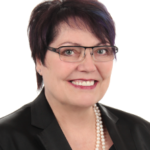 Maike Luiken, PhD, SMIEEE, IEEE-HKN, is 2021 IEEE Vice President – Member & Geographic Activities. She served as President of IEEE Canada in 2018 – 2019 and, in 2018, as Chair, Policy Track, IEEE Internet Initiative. Currently Adjunct Research Professor at Western University, she was the founding Director of the Bluewater Technology Access Centre (now Lambton Manufacturing Innovation Centre) following eight years as Dean at Lambton College with a number of portfolios: School of Technology and Applied Sciences, Business Development, Sustainable Development and Applied Research. Her strategic leadership in the development of the applied research & innovation capacity and portfolio led to Lambton College becoming one of the three top Research Colleges in Canada.
Maike Luiken, PhD, SMIEEE, IEEE-HKN, is 2021 IEEE Vice President – Member & Geographic Activities. She served as President of IEEE Canada in 2018 – 2019 and, in 2018, as Chair, Policy Track, IEEE Internet Initiative. Currently Adjunct Research Professor at Western University, she was the founding Director of the Bluewater Technology Access Centre (now Lambton Manufacturing Innovation Centre) following eight years as Dean at Lambton College with a number of portfolios: School of Technology and Applied Sciences, Business Development, Sustainable Development and Applied Research. Her strategic leadership in the development of the applied research & innovation capacity and portfolio led to Lambton College becoming one of the three top Research Colleges in Canada.
Her areas of interest and expertise span diverse technical areas from ICT, energy and water to advanced manufacturing and nanotechnologies as well as technology design principles, ethics in design and policy associated with their implementation. She has particular interest in how progress in one area, e.g., in ICT, enables advances in other disciplines and in how deployment of various technologies contributes – or not – to achieving sustainable development.
Maike Luiken has experience in the public and private sectors in Canada and has worked in the USA and Germany. She owns a small technology consulting practice and is a co-owner and managing director at a start-up company.
Analysis and Synthesis of Sustainable Systems
Dr. Vasilios I. Manousiouthakis, UCLA
Abstract:
The field of sustainability has traditionally suffered from a lack of specificity, that leads to misinterpretations regarding a system’s sustainability status. The newly introduced concept of “Sustainability Over Set” (SOS) is presented. The SOS concept readily allows the incorporation of human input into system sustainability assessment, by requiring the sustainability practitioner to develop/employ a mathematical model of the studied system, such as for example a set of ordinary differential equations whose solution captures the system’s dynamic behavior.
Bio:
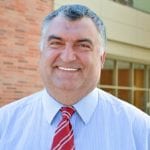 Dr. Vasilios I. Manousiouthakis is a Distinguished Professor, UCLA Chemical and Biomolecular Engineering Department, and the Director, Hydrogen Engineering Research Consortium (HERC).
Dr. Vasilios I. Manousiouthakis is a Distinguished Professor, UCLA Chemical and Biomolecular Engineering Department, and the Director, Hydrogen Engineering Research Consortium (HERC).
Dr. Manousiouthakis received his Diploma, M.S., and Ph.D. degrees all in Chemical Engineering from the National Technical University of Athens (1981) and the Rensselaer Polytechnic Institute (1985, 1986) respectively. Dr. Manousiouthakis has over 100 refereed journal publications, 2 patents, numerous conference publications and presentations, and has supervised 16 PhD students, many of which are in academic positions. He has received the NSF Presidential Young Investigator Award (1988), the Northrop Outstanding Junior Faculty Research Award (1989) the AIChE Ted Petersen Best Student Paper Award (Co-author 1998, Co-author 2001), a UCLA/AIChE Student Chapter Award (2007), the AIChE Environmental Division Cecil Award (2010), the UCLA/AIChE Student Chapter Professor of the Year Award (2011), AIChE Fellow (2012), and the AIChE Sustainable Engineering Forum Research Excellence in Sustainable Engineering Award (2014).
He has been at UCLA since 1985, where he currently holds the rank of Professor. He has served as Department Vice-Chair and Chair, Chair of the UCLA Academic Senate Committee on Committees, Co-Chair of the UCLA Teaching Assessment Committee, Co-Director of the UCLA Process/Control Systems Engineering Consortium, and Director of the UCLA Hydrogen Engineering Research Consortium. He is considered the father of mass integration (mass exchange network synthesis) and of the globally optimal process network synthesis conceptual framework termed IDEAS. He is an expert on Green-Engineering/Sustainability, Systems Engineering, and the Hydrogen Economy.
Enabling What Customers Want: The Story of Enevate’s Technology
Dr. Benjamin Park, Enevate
Abstract:
Customers demand more and more and vehicle companies will have to compete on features people want. In order to drive widespread adoption of EVs, the vehicles will not only have to match that of ICE vehicles, but they will have to be even more convenient than gas cars. EVs should be able to charge in the same amount of time as ICE vehicles as well as offering other value-added features not available on ICE vehicles. Enevate’s pure silicon Li-ion battery technology features unique properties including extreme fast charge while increasing high energy density, wide temperature operation, safety, and reduced cost to help break down barriers to mass adoption of electric vehicles.
Bio:
 Dr. Benjamin Park founded Enevate (originally Carbon Micro Battery) in 2005 and, as CTO, leads the battery research, development, and engineering efforts. With more than 18 years of experience, he is an expert in surface and bulk chemistries, novel battery manufacturing techniques, battery materials screening and development, and battery chemistry. Ben has authored more than 45 book chapters, technical journals, talks and conference publications and has more than 100 patents issued or filed. He holds a doctorate in mechanical and aerospace engineering from the University of California, Irvine, a master’s degree in electrical engineering from Purdue University, and a bachelor’s degree in electrical engineering from Seoul National University in Korea. Dr. Park is also the recipient of several awards, including the Orange County Business Journal Innovator of the Year and the Estus H. and Vashti L. Magoon Award for Excellence in Teaching.
Dr. Benjamin Park founded Enevate (originally Carbon Micro Battery) in 2005 and, as CTO, leads the battery research, development, and engineering efforts. With more than 18 years of experience, he is an expert in surface and bulk chemistries, novel battery manufacturing techniques, battery materials screening and development, and battery chemistry. Ben has authored more than 45 book chapters, technical journals, talks and conference publications and has more than 100 patents issued or filed. He holds a doctorate in mechanical and aerospace engineering from the University of California, Irvine, a master’s degree in electrical engineering from Purdue University, and a bachelor’s degree in electrical engineering from Seoul National University in Korea. Dr. Park is also the recipient of several awards, including the Orange County Business Journal Innovator of the Year and the Estus H. and Vashti L. Magoon Award for Excellence in Teaching.
Our Tractor Fuels and Farm Fertilizer Demonstration System
Jay Schmuecker and David Toyne, Pinehurst Farm
Abstract:
The time is approaching when we will be dependent on renewable energy sources. We will address the installation on an Iowa farm the demonstration Hydrogen, Nitrogen, and Ammonia generation system that is used to fuel a tractor internal combustion engine with hydrogen of hydrogen/ammonia. These products are made in batches using solar arrays as the power source. There are no carbon emissions in either the generation or consumption of these products. The ammonia is also used to fertilize corn cropland.
For additional information see http://solarhydrogensystem.com/
Bio:
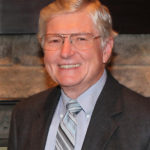 Jay Schmuecker worked for more than 50 years building planetary spacecraft at NASA’s Jet Propulsion Laboratory. Since retiring, he has been developing a solar-powered hydrogen fueling and fertilization system at Pinehurst Farm in eastern Iowa.
Jay Schmuecker worked for more than 50 years building planetary spacecraft at NASA’s Jet Propulsion Laboratory. Since retiring, he has been developing a solar-powered hydrogen fueling and fertilization system at Pinehurst Farm in eastern Iowa.
A new chemical process for ethanol production from carbon dioxide, water, and electricity
Stafford Sheehan, Air Company
Abstract:
A new chemical process for ethanol production from carbon dioxide, water, and electricity.
Bio:
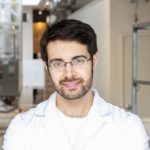 Dr. Stafford Sheehan is co-founder and Chief Technology Officer of Air Company, where he leads a team scaling up technology that transforms carbon dioxide into consumer products. He and his team constructed and operate a 3,000 sq ft pilot plant in Brooklyn, New York, where they produce carbon-negative ethanol, as well as mix and bottle Air Company’s vodka and hand sanitizer products that are available in New York and California.
Dr. Stafford Sheehan is co-founder and Chief Technology Officer of Air Company, where he leads a team scaling up technology that transforms carbon dioxide into consumer products. He and his team constructed and operate a 3,000 sq ft pilot plant in Brooklyn, New York, where they produce carbon-negative ethanol, as well as mix and bottle Air Company’s vodka and hand sanitizer products that are available in New York and California.
If We Build It They Will Come – The Intersection of Technological Systemization and Customer Proficiency
Honorable Daniel K. Tabor, President, MOVE LA
Abstract:
Building a culture of climate awareness that leads to climate proficiency within all customers will require intentional technological systemization across multiple platforms and areas of opportunity. When in realtime information can be synthesized and delivered to adults and youth in ways that support belief systems and values, fewer arguments about the impact humans are having on the climate will result in leaders grabbing their balls, going home, and isolating themselves from the truth and the looming opportunity. Through the stages of identification, monitoring, modeling, predicting, and informing, impacts of human behavior on the environment, climate, and human health can be informed and altered. By closing the gap between what Seniors know through experience and children learn through experimentation we will hasten the achievement of Customer Proficiency.
Bio:
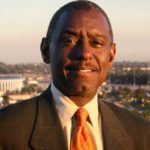 Daniel K. Tabor is currently practicing as an Adjunct Professor in the Child Development, Business, Entrepreneurship and Technology Systems Department, within the School of Business & Civic Engagement, Los Angeles Trade-Technical College, teaching courses in: Business; Small Business Management/Entrepreneurship; Supervision; Organization and Management Theory, Business Law.
Daniel K. Tabor is currently practicing as an Adjunct Professor in the Child Development, Business, Entrepreneurship and Technology Systems Department, within the School of Business & Civic Engagement, Los Angeles Trade-Technical College, teaching courses in: Business; Small Business Management/Entrepreneurship; Supervision; Organization and Management Theory, Business Law.
Daniel’s experience comprises a broad area of human engagement. Expertise within Government / Corporate Management, Policy Development, Research, Intergovernmental Relations, Planning, Program Design, Evaluation & Idea Life-cycle Management, Development & Advancement, Advocacy, Labor Relations / Human Resource Management, Community Engagement.
As President of MOVE LA, a coalition of public advocacy organizations, corporations, non-government agencies, community/neighborhood groups, and individuals. We are committed to the improvement and expansion of public transportation in Los Angeles County, the state of California, and the nation. We develop public policy and programs, to assess transportation projects and modalities, to clean the air, addressing climate change, creating sustainable and liveable communities, affordable housing, and promoting local economic and community benefits. I speak and write on these and related issues.
As the Southern California Liaison, California Task Force, Office of the Secretary, U.S. Department of Commerce during the Clinton Presidency, Daniel represented the U.S. Commerce Secretary and the Department of Commerce. Tasked to Identify, Initiate and Facilitate the advocacy of federal resources to local efforts that seek to create jobs, revitalize the economy and business environment. Advise policy development with state and local, public and private sector leaders and labor organizations in coordination with federal and state agencies to design and implement economic programs. TECHNOLOGY TRANSFER – Urban Focus Policy, Program design, Team recruitment, and implementation. Review and recommendation of AARPA and DARPA proposals for the specific deployment of emerging technologies to address economic goals in Southern California Communities. Example: The Drew Tele-Ophthalmology trial provided ophthalmology services to residents of a LA County-operated Housing Development. Services include screening, diagnosis, case management, specialty referral, and job training.
Currently, a partner in three climate and sustainability enterprises Daniel is committed to solutions not simply conversations about saving all life on the planet.
A Pescatarian, Daniel’s desired avocation is chasing Tuna.
A System of Systems (SoS) for Assessing & Optimizing Networks for Energy Efficiency
Brian Zahnstecher, PowerRox LLC, Co-chair of the IEEE 5G Roadmap Energy Efficiency Working Group
Abstract:
- The International Network Generations Roadmap (INGR) Energy Efficiency Working Group (EE WG) originally wanted to create a block diagram to facilitate working with other WGs and clearly illustrate relations between key stakeholders and network constituents. This effort grew to not only serve as a method to document these relationships, but also quickly became an obvious consolidation of concepts and something we wanted to expand as a usable tool to drive the EE WG roadmap chapter creation methodology.
- From this high-level, our goal was to establish a system in which all these black boxes can “talk” to each other in our “global currency” of energy. Once all black box outputs are translated into a global currency, both static and dynamic analyses can be performed to provide an extremely useful tool that allows any one network constituent to assess the state of any network configuration as well as assess the impact of any black box (or boxes) on another. Ultimately, the best situation is to have such a tool that can also be used to optimize a network configuration for energy efficiency. At the very least, it should be able to recognize network bottlenecks and provide reporting and/or recommendations on how to alleviate these bottlenecks and/or optimize specific blocks for maximal energy efficiency.
Bio:
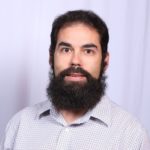 Brian Zahnstecher is a Sr. Member of the IEEE, Chair of the IEEE SFBAC Power Electronics Society (PELS), sits on the Power Sources Manufacturers Association (PSMA) Board of Directors, is Co-founder & Co-chair of the PSMA Reliability Committee, Co-chair of the PSMA Energy Harvesting Committee, and is the Principal of PowerRox. He Co-chairs the IEEE Future Directions (formerly 5G) Initiative webinar series and is the founding Co-chair of the IEEE 5G Roadmap Energy Efficiency Working Group and has lectured on this topic at major industry conferences. He previously held positions in power electronics with industry leaders Emerson Network Power (now Advanced Energy), Cisco, and Hewlett-Packard. He has been a regular contributor to the industry as an invited keynote speaker, author, workshop participant, session host, roundtable moderator, and volunteer. He has over 15 years of industry experience and holds Master and Bachelor degrees from Worcester Polytechnic Institute.
Brian Zahnstecher is a Sr. Member of the IEEE, Chair of the IEEE SFBAC Power Electronics Society (PELS), sits on the Power Sources Manufacturers Association (PSMA) Board of Directors, is Co-founder & Co-chair of the PSMA Reliability Committee, Co-chair of the PSMA Energy Harvesting Committee, and is the Principal of PowerRox. He Co-chairs the IEEE Future Directions (formerly 5G) Initiative webinar series and is the founding Co-chair of the IEEE 5G Roadmap Energy Efficiency Working Group and has lectured on this topic at major industry conferences. He previously held positions in power electronics with industry leaders Emerson Network Power (now Advanced Energy), Cisco, and Hewlett-Packard. He has been a regular contributor to the industry as an invited keynote speaker, author, workshop participant, session host, roundtable moderator, and volunteer. He has over 15 years of industry experience and holds Master and Bachelor degrees from Worcester Polytechnic Institute.


